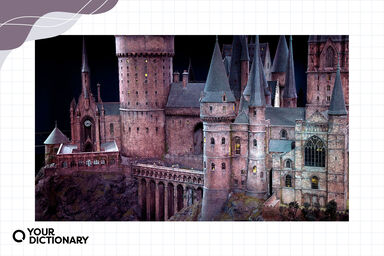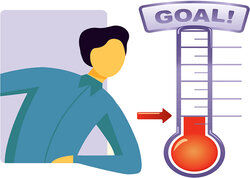Set Definition
- Strongly opposed to:
We are dead set against the idea.
- To cause to ignite and burn.
- To enter.
- To step on.
- To give impetus to:
The indictment set the judicial process in motion.
Idioms, Phrasal Verbs Related to Set
- set against
- set fire to
- set foot in
- set foot on
- set in motion
- set on
- set (one's) heart on
- set (one's) sights on
- set on fire
- set sail
- set (someone) straight
- set store by
- set the pace
- set the scene
- set up housekeeping
- set up shop
- all set
- set about
- set against
- set apart
- set aside
- set back
- set down
- set forth
- set in
- set off
- set on
- set out
- set to
- set up
- set upon
Origin of Set
-
From Middle English set, sete, sette (“that which is set, the act of setting, seat"), from Old English set (“setting, seat, a place where people remain, habitation, camp, entrenchment, a place where animals are kept, stall, fold") and Old English seten (“a set, shoot, slip, branch; a nursery, plantation; that which is planted or set; a cultivated place; planting, cultivation; a setting, putting; a stopping; occupied land"), related to Old English settan (“to set"). Compare Middle Low German gesette (“a set, suite"), Old English gesetl (“assembly"). According to Skeat, in senses denoting a group of things or persons, representing an alteration of sept, from Old French sette (“a religious sect"), from Medieval Latin secta (“retinue"), from Latin secta (“a faction"). See sect.
From Wiktionary
-
From Middle English setten, from Old English settan, from Proto-Germanic *satjanÄ…, from Proto-Indo-European *sodéye-, causative of *sed- (“to sit").
From Wiktionary
-
Middle English sette from Old French from Medieval Latin secta retinue from Latin faction sect
From American Heritage Dictionary of the English Language, 5th Edition
-
From Middle English sett, from Old English gesett, past participle of settan.
From Wiktionary
-
Middle English setten from Old English settan sed- in Indo-European roots
From American Heritage Dictionary of the English Language, 5th Edition
Set Is Also Mentioned In
Find Similar Words
Find similar words to set using the buttons below.





